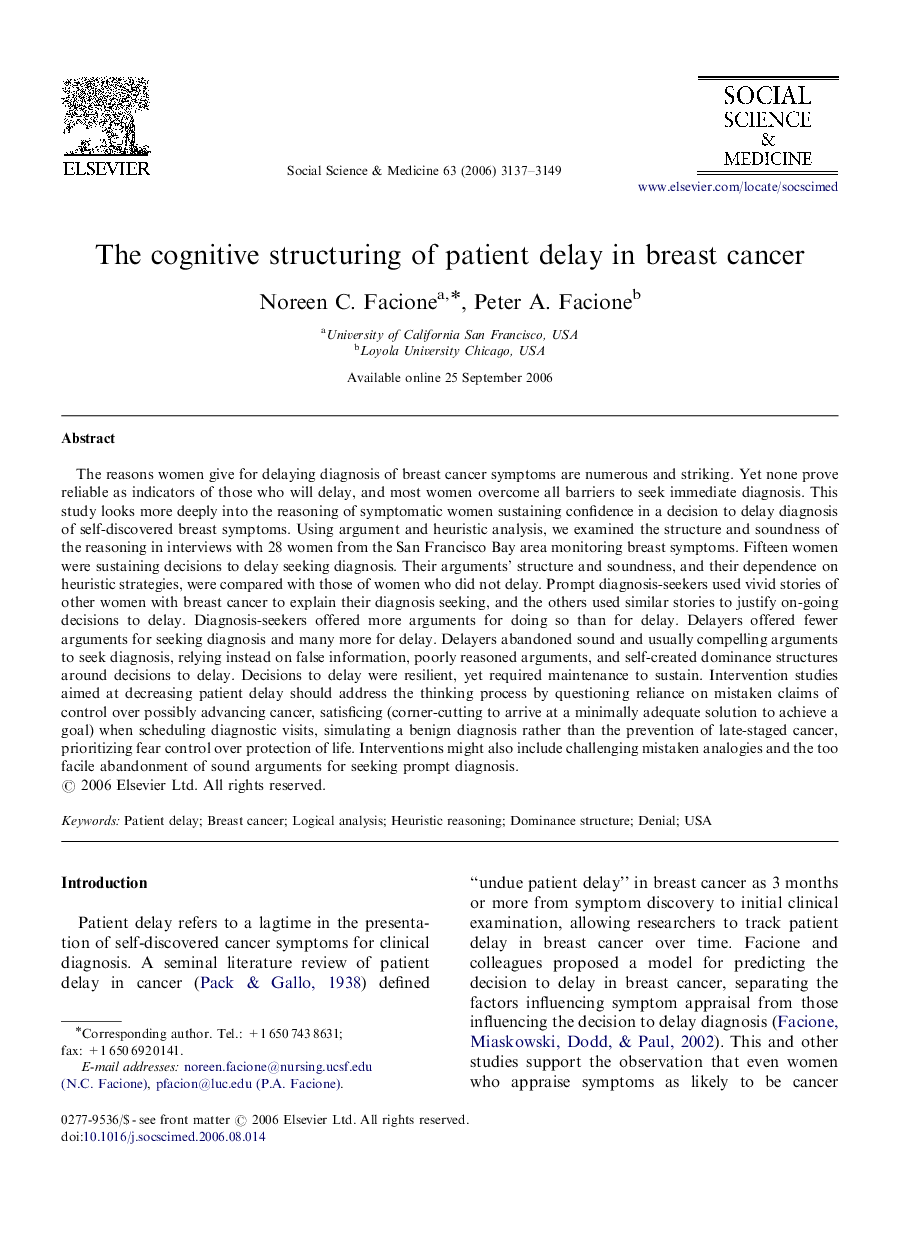| Article ID | Journal | Published Year | Pages | File Type |
|---|---|---|---|---|
| 954086 | Social Science & Medicine | 2006 | 13 Pages |
The reasons women give for delaying diagnosis of breast cancer symptoms are numerous and striking. Yet none prove reliable as indicators of those who will delay, and most women overcome all barriers to seek immediate diagnosis. This study looks more deeply into the reasoning of symptomatic women sustaining confidence in a decision to delay diagnosis of self-discovered breast symptoms. Using argument and heuristic analysis, we examined the structure and soundness of the reasoning in interviews with 28 women from the San Francisco Bay area monitoring breast symptoms. Fifteen women were sustaining decisions to delay seeking diagnosis. Their arguments’ structure and soundness, and their dependence on heuristic strategies, were compared with those of women who did not delay. Prompt diagnosis-seekers used vivid stories of other women with breast cancer to explain their diagnosis seeking, and the others used similar stories to justify on-going decisions to delay. Diagnosis-seekers offered more arguments for doing so than for delay. Delayers offered fewer arguments for seeking diagnosis and many more for delay. Delayers abandoned sound and usually compelling arguments to seek diagnosis, relying instead on false information, poorly reasoned arguments, and self-created dominance structures around decisions to delay. Decisions to delay were resilient, yet required maintenance to sustain. Intervention studies aimed at decreasing patient delay should address the thinking process by questioning reliance on mistaken claims of control over possibly advancing cancer, satisficing (corner-cutting to arrive at a minimally adequate solution to achieve a goal) when scheduling diagnostic visits, simulating a benign diagnosis rather than the prevention of late-staged cancer, prioritizing fear control over protection of life. Interventions might also include challenging mistaken analogies and the too facile abandonment of sound arguments for seeking prompt diagnosis.
